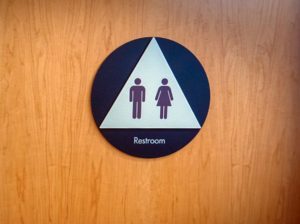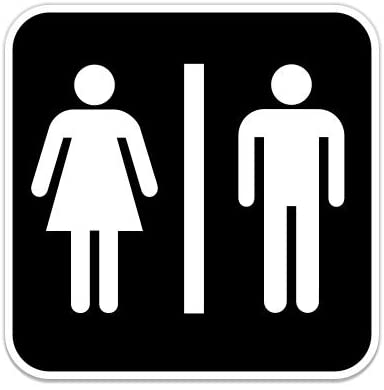Research from a study conducted in 2013 & 2014 was meant to explore the advantages or disadvantages of females serving in special operations units. Instead, it uncovered a recurring theme the researchers didn’t introduce or ask the 27 focus groups at all, but that was brought up over 350 times…unisex bathrooms and team room areas.
The University of Kansas study was published in February 2021 in the Armed Forces & Society journal. The research data presented the following porcelain statistics:
- 33% of service men said they would never be willing to share a bathroom (unisex facility) with women
- 61% of service women said they were willing to share a bathroom (unisex facility) with men

Are you surprised by the numbers? When asked why they wouldn’t want to have unisex bathroom facilities or team room space, the men gave much of the same responses, including a concern that women needed separate space for hygiene purposes and cleanliness, fear of privacy issues, and also admitting they didn’t want to lose access to men-only spaces. Some shared the fear that they would need to censor their talk if sharing facilities with women.
As reported by Military.com, one of the males in the study admitted: “There’s a lot of things that you don’t hold back in a team room. It’s behind closed doors. You do what you need to do to get whatever accomplished and you say what needs to be said. You put a female in the mix and then there’s people getting offended.”
The researchers interpreted these responses to mean that men are more concerned about keeping the makeup of Special Forces members predominately male. While not said directly, the discussion around the bathroom topic had participants implicitly implying that Special Forces was a place where “women did not belong.”
The researchers stated that historically, workplaces that were predominately male would use bathroom availability as an excuse or reason to keep women from integrating into the workplace. This presented itself in the past with law enforcement, Congress, fire stations and more.
“Invoking the language of hygiene, risk, and privacy, men pointed out the unique embodied differences that mark women as unfit to integrate into Special Forces while subverting other motives intended to preserve the toilet as a privileged male-only space,” the authors wrote.
Although women are able to serve in multiple combat specialties, the number of women in elite force roles is extremely low.
(At the time of this study, transgender service members were not allowed to serve, so transgender bathroom use was not part of the data.)


